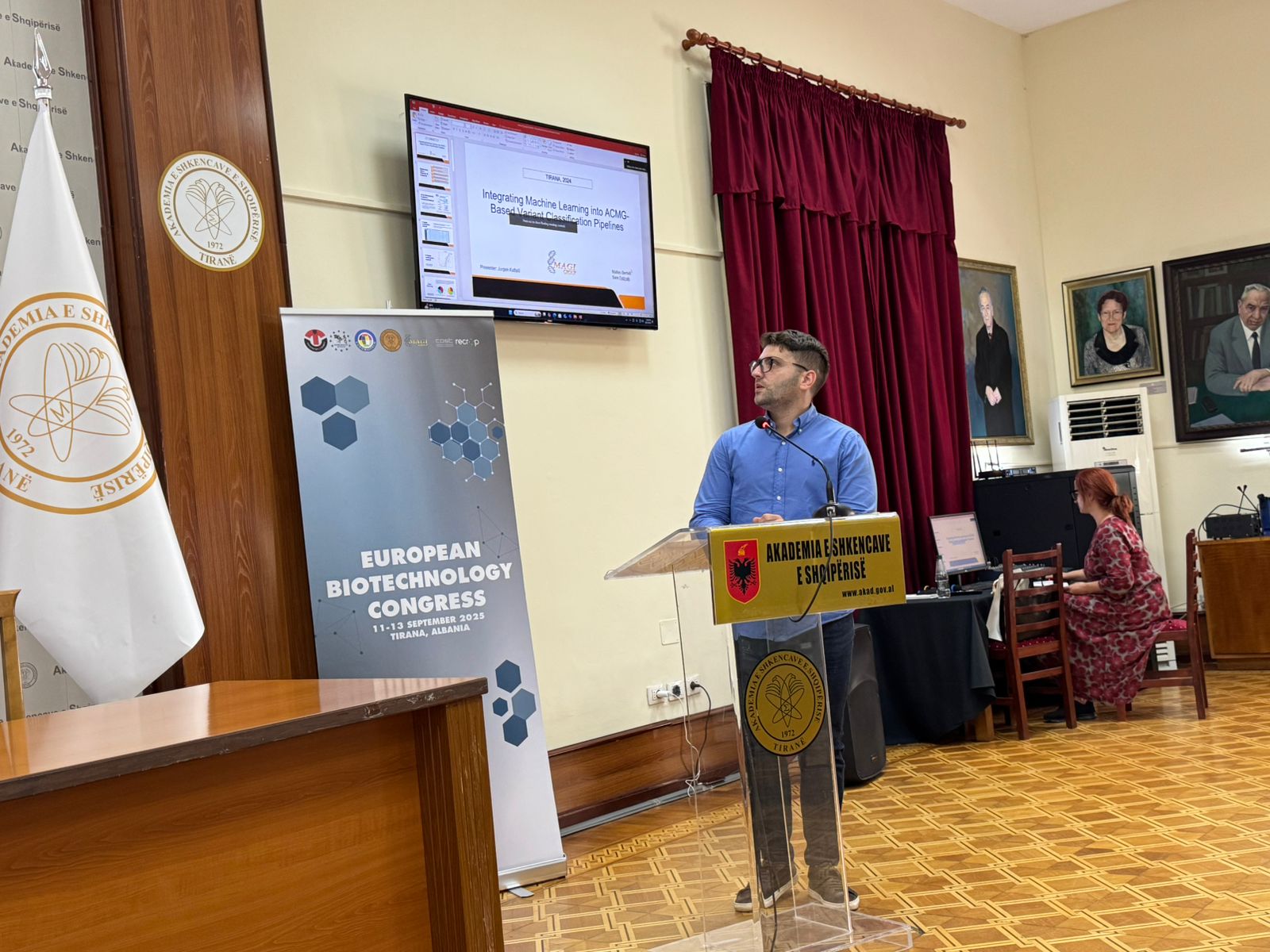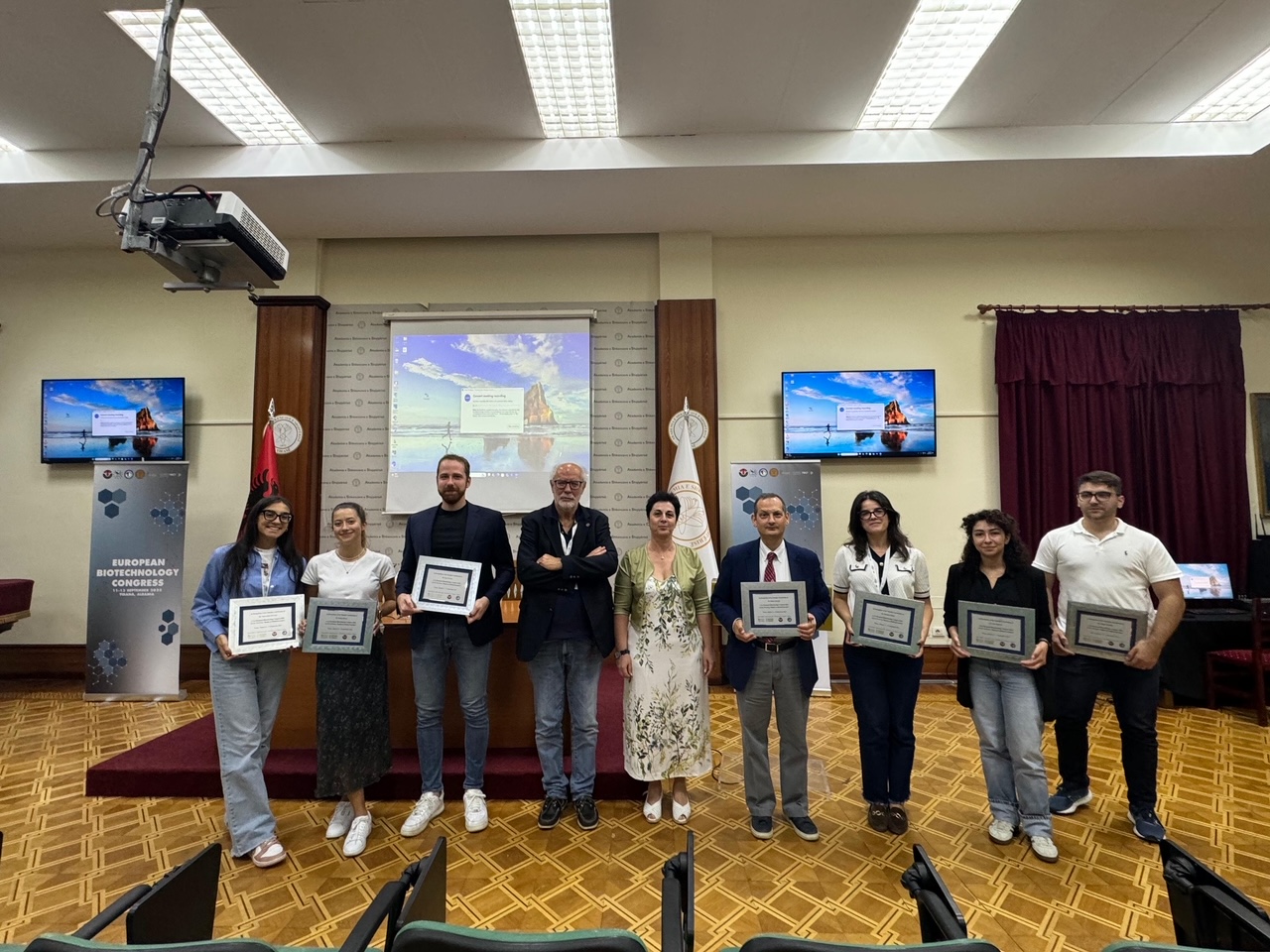Tirana – There are moments when science transcends laboratories, data, and experimentation to become a universal language of progress and solidarity. The European Biotechnology Congress 2025, held in Tirana from September 11 to 13, was one of those moments.
Promoted by the European Biotechnology Thematic Network Association (EBTNA), in collaboration with the Academy of Sciences of Albania and the University of Tirana, the congress brought together scientists, academics, and researchers from across the world for three days of exchange that overcame borders, cultures, and disciplines.
A Capital at the Heart of the Scientific Mediterranean
There could be no more fitting setting than Tirana, officially recognized as the 2025 Mediterranean Capital of Culture and Dialogue. A natural bridge between East and West, the city welcomed a scientific community that embodied openness, diversity, and collaboration.
Academics from Albania, Kosovo, Turkey, as well as from Israel, Canada, the United States, Australia, France, the United Kingdom, and Spain, came together to form a true global capital of biotechnology.
Scientific Leadership: Guiding Voices of the Congress
Special recognition goes to the individuals who led and made this event possible:
- Prof. Ariola Bacu, Chair of the local organizing committee, a leading voice for Albanian biotechnology and strong advocate of green and blue perspectives
- Prof. Munis Dundar, President of EBTNA, who reaffirmed the association’s mission to make biotechnological innovation a shared global good
- Prof. Tommaso Beccari, Treasurer of EBTNA and a key figure in the Italian scientific community, representing the group from the University of Perugia
- Dr. Matteo Bertelli, International President of the MAGI Group, who marked the 20th anniversary of the global research network
- Dr. Natale Capodicasa, President of MAGI Balkan, who celebrated 10 years of scientific activity in the region, nurturing a new generation of researchers
Ten Years of MAGI Balkan: A Legacy for the Next Generation
The session dedicated to the 10th anniversary of MAGI Balkan symbolized the passing of the torch to younger generations. Early-career researchers presented work on machine learning algorithms for rare diseases, complex bioinformatic modeling, genetic studies, and in vivo experimentation.
It was not just a celebration of results, but of method and vision: science as a collective endeavor, with young people not merely as observers, but as active participants and innovators.
A Chorus of International Voices
The congress welcomed a wide variety of outstanding contributions:
- From the United States, Prof. Ratnesh Lal introduced molecular biosensors for self-diagnosis, opening new frontiers in personalized medicine
- From Canada, Prof. Burim Ametaj discussed probiotic alternatives to antibiotics, with significant implications for both healthcare and agriculture
- From Israel, Prof. Robert Marks presented microbial biosensors for environmental safety and monitoring
- From Turkey, Prof. Ercüment Ovalı presented advancements in CAR-T cell therapies
- From Australia, Prof. Adam Mechler opened new perspectives on biocatalysis and biomedical applications of novel peptides
- From France, Prof. Tristan Cardon tackled the challenge of the “ghost proteome” in oncology
- From the United Kingdom, Prof. Iza Radecka led a session on bioplastics and sustainable polymers
- From Spain, Prof. Óscar Vicente presented key advances in plant biotechnology for agricultural resilience and food security
Each voice contributed to a global symphony of biotechnology.
Green, Blue, and Industrial Biotechnologies: Science for the Planet
The sessions covered the full spectrum of life sciences:
- Medical biotechnology, with a focus on genomics, the microbiome, and advanced therapies
- Environmental and marine biotechnologies, critical for sustainable agriculture and water resource protection
- Nanotechnology and biosensors, opening new opportunities for environmental monitoring and rapid diagnostics
- Industrial and green biotechnologies, with natural polymers and innovative biocatalysts
A truly 360-degree approach that turned the congress into a global multidisciplinary laboratory.
Science as a Bridge
Perhaps the most enduring legacy of this congress is the sense of a global scientific community that knows no boundaries or barriers.
The dialogue between Albania and Kosovo, Turkey and Israel, Europe and the Americas, and North and South, proved that biotechnology is not only about research, but also about bridging cultures, societies, and knowledge systems.
At a time when the world faces division and uncertainty, Tirana offered a different vision: one of a global community that comes together not to compete, but to build—together.
Conclusion: A Triumph for EBTNA and Scientific Collaboration
The European Biotechnology Congress 2025 was more than a scientific event—it was a cultural and diplomatic statement on the power of shared science.
It was a celebration of EBTNA, of its leadership, and of every researcher who contributed to this collective effort. But above all, it was a declaration of belief: that science, when shared, is humanity’s most powerful tool.
Tirana has shown itself to be not only a capital of the Mediterranean, but a universal capital of biotechnological dialogue.
And this congress proved that when science becomes cooperation, the future truly is within reach for all.


